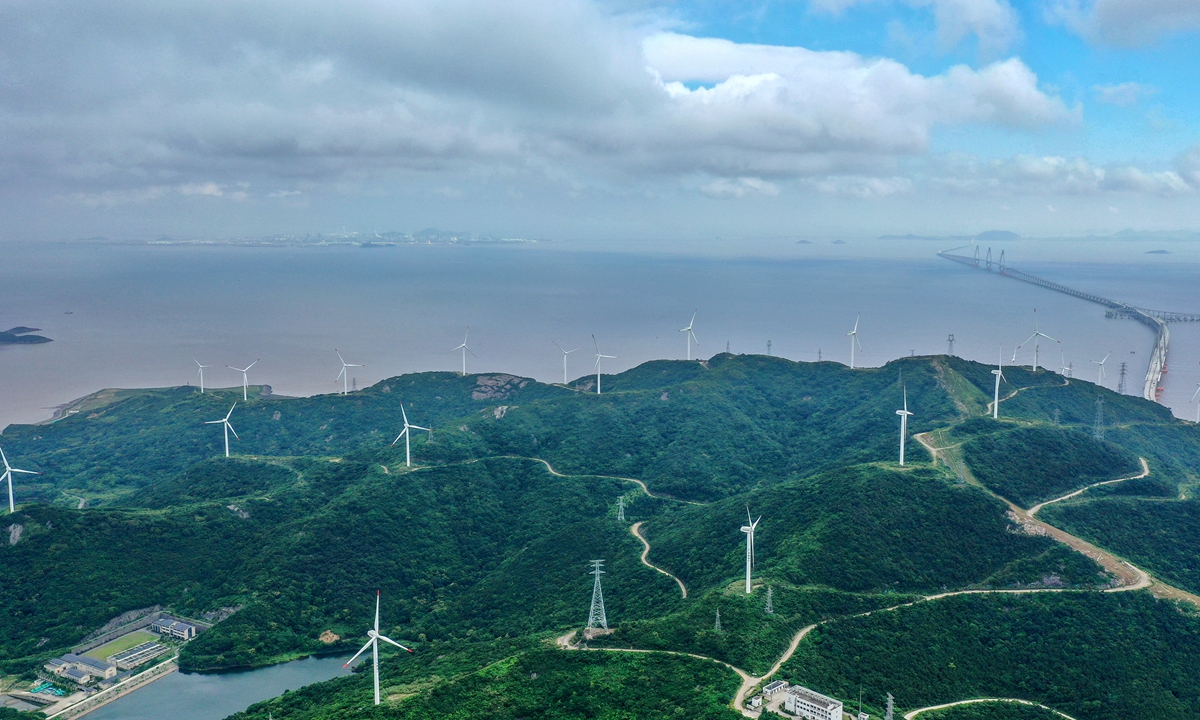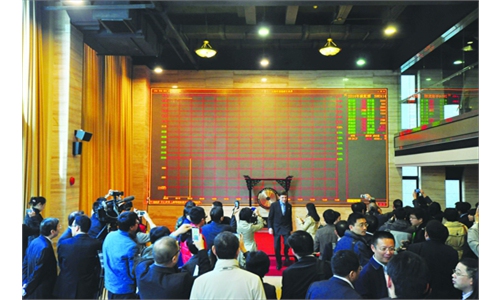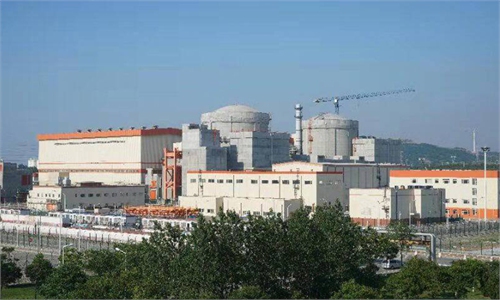
Wind turbines rotate as sea breezes flow through the Cengang Wind Farm in Zhoushan, East China's Zhejiang Province on Tuesday. The farm delivered 29.88 million kilowatt-hours of green power into the national grid from January to May this year. It's calculated that's enough to reduce carbon dioxide emissions by about 24,300 tons. Photo: cnsphoto
China will launch a national carbon emission trading market in July for power generation to control and reduce greenhouse gas emissions, marking an important step toward achieving China's goal of carbon neutrality through a market mechanism.
This latest update on the carbon emission trading market was announced at the State Council executive meeting, which was presided over by Chinese Premier Li Keqiang on Wednesday.
The decision came just two weeks after the Shanghai Environment and Energy Exchange, China's first national carbon emissions trading platform, issued a notice on matters related to national carbon emission trading, which for the first time clarified the trading methods and trading time for the national carbon market. The notice drew an active response from companies in A-share markets to embrace the trillion-yuan market.
"In order to achieve the goal of carbon neutrality, the national carbon emission trading market is a vital step as it puts a price on carbon, supports renewable energy and clamps down on high energy consumption through market-based means," Lin Boqiang, director of the China Center for Energy Economics Research at Xiamen University, told the Global Times on Wednesday.
It is estimated that during the 14th Five-Year Plan period (2021-25), clean energy will account for 80 percent of the increase in energy consumption, 20 percentage points higher than during the 13th Five-Year Plan period (2016-20).
The ambitious climate pledge will require a lot of funds for it to be fulfilled. But clean energy that used to rely on government subsidies cannot be sustained given the funding it needs, so it will be up to the market to solve the problem for the future development of clean energy, said Lin.
As of March, the pilot carbon market covered nearly 3,000 key emitters from more than 20 industries, covering a total of 440 million tons of carbon emissions, with a total turnover of about 10.47 billion yuan, data from the Ministry of Ecology and Environment showed.
At present, eight energy-intensive industries will be gradually included in the national carbon market, including petrochemicals, chemicals, building materials, iron, non-ferrous metals, papermaking, power and civil aviation, according to Sinolink Securities, Securities Times reported.



